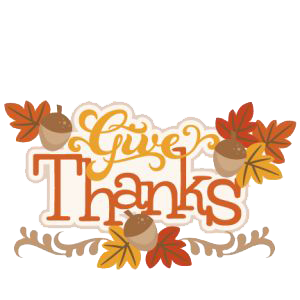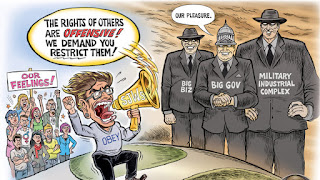The holiday season is in full swing in America. Christmas
items have been in stores since before Halloween, but I haven’t seen much of
them because I haven’t done much shopping. In fact, I don’t know what kind of
money I may or may not have for Christmas. I might not have anything at all to
spend.
We’re fast
approaching Thanksgiving, an extremely American holiday dedicated to feasting,
or, as it’s rather commonly imagined, absolutely stuffing your face until your
stomach screams in protest and you pass out in a food coma. Naturally, this is
followed by Black Friday, which has essentially become a holiday all its own, arguably
more American than Thanksgiving itself. Black Friday is a true ode to
consumerism, and ever so American as people literally assault one another just
to spend less money for products they don’t really need, than they would have
spent otherwise.
At this
time of year, the paradox is this: We give thanks for what we have, only to
wake up the very next morning and buy more things. It seems quite contradictory
to me, and that’s why I don’t participate in Black Friday. I don’t participate
in Cyber Monday, either, although the idea is rather brilliant for targeting
people like me who would rather die of suffocation or drowning than ever be
caught in a Black Friday crowd at an outlet store.
I’d like to dedicate this entry to gratitude.
Often,
people who have been through trauma as I have find that this is an
exceptionally difficult holiday. Family dysfunction throughout our lives throws
a cog in the gears of attempted joy on a day dedicated to, well, food. That’s
why I think it’s important that I talk about my past as I say what I’m grateful
for.
My father has never hosted an event for Thanksgiving.
He’s seldom
had his own residence, but more than that, I have no memory in my life of my
father hosting Thanksgiving, with or without roommates. He always sees his
mother, my grandmother, for the holidays. This isn’t a bad thing until one
realizes he wasn’t there for a lot of Thanksgivings. He broke a lot of promises
and made me feel very small when he would see me. He’s been one of the most
dismissive people in my life of my dreams, my desires, my goals, and my
personality—my own essence of being.
I’m thankful for my dad.
The abuse
and neglect have taught me a lot about forgiveness and human nature. No, it’s
not human nature to be the way he was, but given his own background, the
explanations exist. The reasons are there, and they have nothing to do with me.
I’m not convinced my dad loves me the way a father’s supposed to love his
daughter, and there’s no way to go back in time to give him another chance to
be my dad. But he’s doing better with his new kid than he did with me, and even
if he doesn’t contact me very often, it seems he’d like to have a relationship
with me. Maybe it’s guilt. Maybe it doesn’t matter.
He’s my
father. I respect him for his experiences and wisdom, for what they’re worth.
Thanksgiving with my mother is never a great time.
I’m sure
she’s hosted Thanksgiving in my lifetime. I’m almost sure I have refused to
attend them if she’s hosted. More often, she would take us to her uncle Ken’s
house, with her mother. These days, Uncle Ken doesn’t seem like much of an
option. He seems to be losing his marbles much the way his late mother did
(dementia is a beast), so my mother told me the celebration this year would be like
last year: hosted at her mother’s house.
The problem
is, it’s always awkward. The good news is, it’s only awkward, now. The reasons for the awkwardness aren’t great,
though, as my mother was a terrible parent. I can’t speak for how she parents
now, but I have a hunch it’s only marginally better. She makes a lot of poor
choices, and has for most if not all of her life. She’s certainly made poor
choices and poor judgment for the entirety of my life.
I’m thankful for my mom.
Let’s be
real. No matter how much of a fuck-up my mother may be, she still gave me this
life. With the trials, tribulations, and exposure to opposing and coexistent
worlds, I wouldn’t be here without her. It’s a hell of a trip, living life. It’s
not easy, nobody gives you any shortcuts or manuals, and anyone who gets those
things is only lucky to those who do not know better. The truth is, even the
silver spoons and life manuals only do so much, and nothing beats the hard,
hands-on experience that comes from bumbling through life without instructions.
My mom’s
been through trauma at least as much as I have, if not more. She didn’t have
the best mother in the world, either, and she didn’t have the best father. I
would never speak ill of the dead, much less the grandfather I never knew. I
met some of his family and they never spoke badly about him, but I know what my
mother and uncle have told me. While I’m thankful for my mother giving birth to
me, I’m more thankful to her for letting me go when she did. I’ve often wished
I could go back in time and take away the two years I spent with her. I’ve
thought, I wouldn’t have developed such anxiety, or I wouldn’t have developed
an adjustment disorder, if only she’d never had custody of me.
Even so, if
I hadn’t lived with her, I wouldn’t know what it’s like to live in poverty. I
wouldn’t know what it’s like to have an abusive, dysfunctional household. I
wouldn’t know what it’s like to be yelled and screamed at instead of spoken to,
or what it’s like to beaten with a wooden spoon. I wouldn’t know what it’s like
to have lice, to be outcast and treated like shit for things you have no
control over.
Thanksgiving with my grandparents is a wholesome family experience.
Throughout
everything, I remain most thankful to my grandparents. They took me in, gave me
shelter, provided me with everything I needed: food, drink, education,
clothing, healthcare, and even vacations. Thanksgivings and Christmases with my
grandparents is almost always a great time. Still, it’s occasionally been
something like your typical American family Thanksgiving: awkwardness and some
fighting.
Year before
last, when I was married, I didn’t enjoy Thanksgiving with my grandparents.
Part of it was that my ex-husband had ruined my daughter’s and his own appetite
before we arrived.
I’m thankful for my grandparents.
They’ve
always had my back. They’ve helped me more than anyone else in my life. There’s
no way I’ll ever be able to repay them, and that’s okay, because I’ve learned
throughout my life thus far that it’s more important to pay it forward than to
pay it back. I didn’t learn that from my grandparents, or my mother or father.
I learned that through the myriad of experiences I’ve had, and it’s something
that’s confirmed every now and then as I continue living.
If it weren’t
for the time I had with my grandparents, I wouldn’t know that it’s possible to
improve my station in life. I wouldn’t know anything about the possibility of a
person to overcome their past, their heritage, their own culture. If it weren’t
for my grandparents, I’d never have joined the military, and if it weren’t for
the military, I wouldn’t have as open a mind as I do.
A lot of
fear remains. I’m not married anymore, and I’m grateful to no longer be in an unhealthy
and toxic relationship. I’m grateful for my daughter, who wouldn’t be here if
not for my ex-husband. I’m grateful for the lessons I gleaned from my
relationship with him, the character wisdom I gained.
Life is a journey whose end you can’t see, and whose beginning varies in meaning and importance.
I’m in a
better place than my parents have done. I’m relatively stable, with every
opportunity to keep what I have and continue to improve. It’s overwhelming, and
difficult. I can’t survive on a single income, unless I manage to increase my
VA disability to 100%. I believe I qualify for such a rating, but it’s not
something that’s been high on my list of priorities because I’d rather push
myself to do better. I don’t want to lie around doing nothing, collecting a
check just for having a pulse.
Life is
about the struggle. It’s about the journey, the ups and the downs. It may be true that we don’t have a choice to have
it any other way, and showing gratitude is a great way to cope.





















